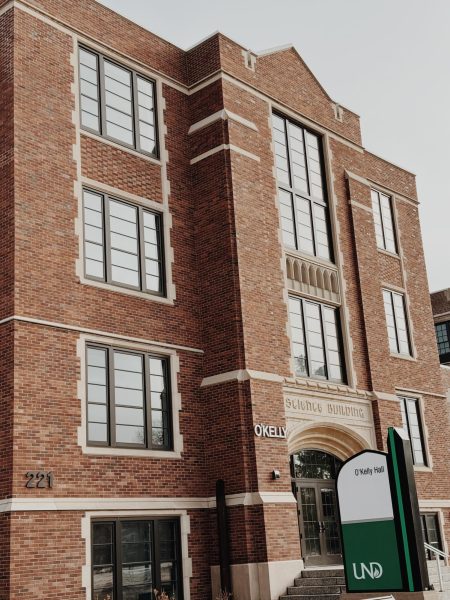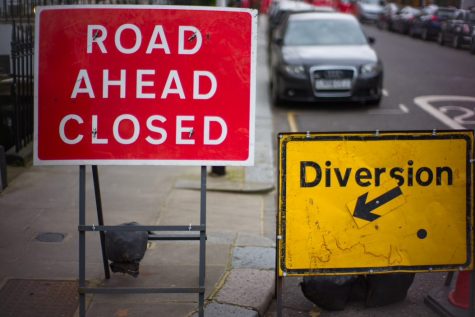Stigma of Mental Health
December 28, 2020
For longer than you could fathom, there has been a stigma around mental illness and mental health. This stigma, or rather those who perpetrate it, has created negative outlooks on the issue, have created biases, and have created discrimination. A majority of the time this stigma or belief is held by younger individuals, that think having mental health issues isn’t okay or it means something is wrong with them. In reality that isn’t true, everyone experiences mental health issues like anxiety, depression, and personality disorders; or even things like eating disorders. Studies have shown that more than 50% of Americans will be diagnosed with mental illness or disorder in their lifetime. Mental health isn’t an issue that should be ignored and ignoring it can lead to different or even drastic outcomes. Mental health should not be viewed negatively, and it also shouldn’t be something that’s criticized.
One of the most negative outlooks on mental illness is that it’s just being used as a sort of attention seeker. Instead of accepting that this is real, it gets dismissed, generally by parents, guardians, friends, employers, or even other authoritarian figures like teachers. It is really unfortunate that there is such a huge lack of understanding surrounding mental illness and mental health. I think it’d be really beneficial to have more discussions surrounding mental health with children and adults alike, especially in the home environment. There are probably thousands of videos online to check out on the topic, as well as movies and books. I think the media should work harder to talk about these issues, and at the same time try not to generalize mental illness.
The stigma around mental health often brings forth discrimination, which can be subtle or direct. You might face bullying or other forms of harassment, especially if you’re young. You might be confronted by biases that keep you from finding work, I think that’s incredibly unfair. For instance, I have read and heard many accounts of discrimination in the aviation industry. Now, obviously, I understand the need for good “level-headed” individuals when it comes to looking for pilots and I can understand that not all mental health issues are equal. However, I still think it is unfair and can go overboard so-to-speak. Being labeled with mental health issues sometimes has consequences, in many backgrounds or careers. One is being bombarded with examinations/evaluations and treatment to receive and retain official medical certification. This can lead to anxiety or the fear of losing your job because of circumstances out of your control.
Another issue, as I mentioned previously, is that there is a great deal of reluctance in seeking help or treatment. As someone who has dealt with mental health issues throughout my young adult life and into my adult life, I know what it’s like to have a negative outlook on your problems. I used to think there was something wrong with me or that people would call me a freak just because it made me different. I do still struggle with these thoughts even today. However, I do understand now that you can’t let these things sit on the back burner and it’s important to get help when you need it. It’s important to talk to people about the things you’re experiencing or dealing with, because they may be able to relate to you or help you however you need. Talking with professionals or counselors can give you perspective on your issues, it can be beneficial to get something off your chest, and it can ease your mind to understand what exactly is going on and what options you have. As a student, your mental health is a priority, and there are many resources on campus that are available for students to use. The counseling center on campus is an especially good resource and you can talk to anyone there judgment-free.
Another resource open to students, as previously mentioned, is the wellness center. It’s been proven that exercise can be very beneficial to your overall mental health, as can a proper diet and sleep schedule. Obviously, these things aren’t a cure-all, and everyone is different. Personally, music helps me a lot with my anxiety and depression, whether it be listening to music or even making it. Music helps a lot of people cope with anxiety. I think another thing that can soothe anxiety or depression is being grateful for all the good you have in your life. Sometimes focusing on the positives can really help lift you from that dark place or negative emotions. I understand this can be difficult depending on each person’s background or mental state. For example, It’s really hard for me to overcome my own issues because I essentially become almost fixated on them and it can feel like a vicious cycle. So, nothing is as simple or as easy as it seems.
Do you struggle with anxiety or depression? What do you do to cope or comfort you? Do you find it easy to seek help? Have any of the aforementioned issues of this stigma affected you? How do they affect you and why? What do you think about discrimination in the workforce around mental illness? As always, feel free to reach out via email with any comments you may have pertaining to today’s article or even just feedback about what I could have covered better. I enjoy hearing back from readers with their own opinions or personal thoughts. Stay tuned for new articles every Monday and Friday, and stay safe out there!
Demetria Slyt is a Dakota Student Opinion Writer. She can be reached at [email protected]












